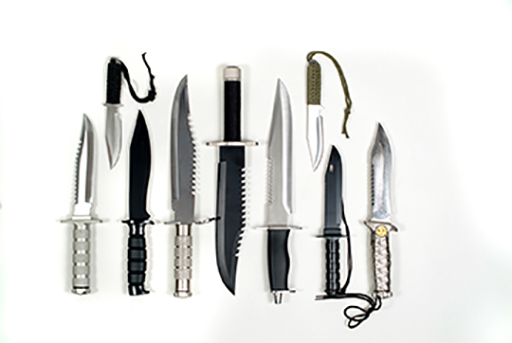5 Young people and knife crime: a Scottish approach

In 2005, a United Nations report noted that Scotland was the most violent country in the developed world (Younge and Barr, 2017). The World Health Organisation declared it had the second highest murder rate in western Europe (Finland had the highest). In Glasgow alone, there were about seventy killings each year. The reasons for these levels of violence were complex, but one part of the problem was identified in the growing culture of knife carrying among young people in the city. This was also associated with different gangs competing to control the city’s illegal drug markets.
In response, the Scottish Government funded a new multi-agency Violence Reduction Unit (VRU). It adopted a public health approach to knife crime in which the police worked with those in the health, education and social work sectors to address the problem. The results have been dramatic. In 2018, of the 35 children and teenagers who were killed in Britain, none were from Scotland.
In the next activity you can see some of the ways this has been achieved, by adopting the principles of holistic social education that informed the Kilbrandon Commission and the Children’s Hearings system.
Activity 6 Animating and educating to reduce violence
Spend five minutes looking at the ‘No knives, better lives’ [Tip: hold Ctrl and click a link to open it in a new tab. (Hide tip)] website so that you are briefly familiarised with its aims.
As an optional activity, look at the complete interactive animation.
Please note that there are some distressing themes and graphic images in this video, as well as some bad language which may cause offence.
Discussion
Violence is a complex phenomenon and there is strong research evidence to support the approaches developed in Glasgow. The animation uses graphics and realistic scenarios to offer visitors to the website a way of appreciating how young people may negotiate those complexities. Different consequences emerge through the interactive story sequence. The website suggests a simplistic policing and criminal justice response to knife crime is inadequate, short-sighted and counter-productive.
Elsewhere in Britain, the issue of violence among young people and the lethal use of knives became urgent and high profile during 2018 and 2019. The Scottish approach of seeking social solutions rather than criminal justice ones is anchored in its civic traditions and philosophies that have been part of Scottish society since the eighteenth century. They form the basis for the Children’s Hearings system.
